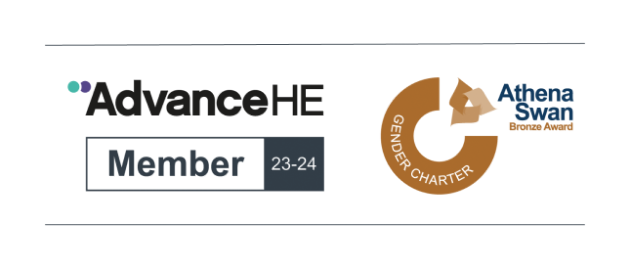This paper is available for the academic year 2023-24.
Beginners' course in the first year
The first year of the ab initio Russian course is intended to introduce students to the basics of the Russian language in papers SLA1 and SLA2, as well as to the interdisciplinary study of Russian culture in paper SLA3.
The ab initio course is designed to take you from scratch to A-level standard in the space of eight months (October-May). This is roughly the equivalent of level B1 of the Common European Framework of Reference for Languages. The course is, therefore, very intensive.
By the end of the year students should be able to use elementary grammar and syntax with a reasonable degree of confidence and accuracy, and should have sufficient vocabulary to be able to engage in simple conversation, tell a story, and translate simple texts. Students will also have read a range of short 19th and 20th-century texts in Russian and will have studied key events and issues in Russian cultural history from the medieval period through to the present. They are thus prepared to continue with language study and to select from a range of scheduled papers on Russian literature, history, and culture in Part IB.
Allocations to language classes
Allocations to ab-initio language classes usually takes place on the Wednesday before the Michaelmas teaching terms starts. An introductory meeting for paper SLA3 usually takes place on the same Wednesday. The meeting dates, times and locations etc. will be sent to students. Students should check their emails regularly as they will receive details for attending from their Directors of Studies or alternatively they can contact the Slavonic Studies Secretary. [Please note that timings of meetings are subject to change. Students and Directors of Studies are asked to refer to the start of term arrangements as listed in the Faculty's information packs or contact the Slavonic Studies Office]
Before you start: Summer Preparation for the ab initio course
Russian belongs to the Slavonic group of the Indo-European languages, and although there are many similarities between Russian and Romance and Germanic languages, there are many differences too, so the learning curve in the first year is very steep.
Students are strongly advised to study as much basic Russian grammar as possible before you arrive in Cambridge. This can be done by independent study and/or by attending language courses either in Great Britain or abroad.
You will be asked to do an online exercise prior to coming to Cambridge. (Information will be sent out in late August/beginning of September). Even though this is an ab initio Russian course, students arrive with different levels of basic Russian. The aim of this exercise is to assess how much grammar and vocab you know and allocate you to the right group. The exercise will be based on the material covered in the first few chapters of the textbook (as outlined below).
In order to be ready for the rapid pace of the course, you should complete the following minimal preparatory work by the start of the Michaelmas term:
-
Learn the Russian alphabet and practice reading in Russian
-
Work through at least the first six lessons of the ab initio textbook, Colloquial Russian by Susan E. Kay and Svetlana Le Fleming (Routledge, 4th edition). The following links will take you to Quizlet, which contains exercises to help you learn vocabulary from the first six units. In 2023-24, we will be using the 4th edition (2017) of Colloquial Russian textbook (not 2023).
- Practice Russian handwriting; please see recommended sites with instructions on how to form Russian letters here.
Beginners' course in the first year
Language Work
You will be attending five weekly classes:
- Introduction to Russian (1 hour)
- Use of Russian (1 hour)
- Grammar Workshop (1 hour)
- Translation from Russian (1 hour)
- Oral supervision (1 hour)
- Grammar supervision (1 hour; Michaelmas term only)
Textbook:
- Svetlana le Fleming, Susan E. Kay, Colloquial Russian (Routledge, 2017, 4th edition), textbook and recordings
Recommended reference works:
- The Oxford Russian Dictionary (Russian-English, English-Russian OUP)
- Terence Wade, A Comprehensive Russian Grammar (Blackwell)
- James S. Levine, Schaum’s Outline of Russian Grammar. (McGraw-Hill Education)
- Russian online dictionary
Introduction to Russian Culture: Paper SLA3
Teaching provision for paper SLA3 consists of 8 weekly lectures and 2 supervisions in Michaelmas; 16 weekly lectures and 8 weekly supervisions in Lent; and 4 revision supervisions in Easter. Supervisions for paper SLA3 in Lent and Easter will integrate language work with literary and cultural analysis of short Russian texts. Supervisions for paper SLA3 are organised centrally through the Section on behalf of your college. For details of this paper, see Introduction to Russian Culture (SLA3).
Please see website for SLA3 for a list of the recommended preparatory reading.
Assessment
At the end of the year you will take one oral exam and three written exams:
- SLA1: Use of Russian
- SLA2: Translation from Russian and Oral A
- SLA3: Introduction to Russian Culture
Previous years' examination papers are available from the MMLL Library for ab initio Russian. Please note that past exam papers for SLA3 (previously RuA3) before Tripos 2010 are NOT relevant. Students will receive access to the password-protected Moodle sites at the beginning of the Michaelmas term.
Additional Resources
In addition to working through the first 6 chapters of Colloquial Russian before starting your course, you may find it helpful to explore the aspects of the Russian language on some of the available websites:
- Russian Vocabulary.
- Learn Russian Step by Step.
- Learn Russian for Free.
- An Online Interactive Reference Grammar.
Youtube is an excellent source of authentic Russian language material. You can find Russian films and cartoons (also with subtitles), Russian television, Russian music and many other entertaining Russian materials there with just a little creative searching.
As a supplement to the grammar work and reading recommended above, try to develop a good basic knowledge of the main features of Russian literature, history and culture. You may do additional reading from the bibliography posted online for SLA3, or simply look for the following:
- Auty, R. & Obolensky, D., eds. Companion to Russian Studies, vols. 1-3, (Cambridge).
- Simon Franklin and Emma Widdis (eds.), National Identity in Russian Culture: an Introduction (Cambridge)
- Daniel H. Kaiser and Gary Marker (ed.), Reinterpreting Russian History, Readings 860 - 1860s (Oxford)
Obtaining books
Heffers Bookshop in Cambridge will have copies of some set texts by the beginning of the Michaelmas Term. Many Russian books are available for downloading free on the web.
The Colloquial Russian course book can be purchased from the Waterstone's or Blackwell's online shops or from amazon.co.uk. Please note: in 2023-24, we will be using the 4th edition (2017) of Colloquial Russian textbook (not 2023).





